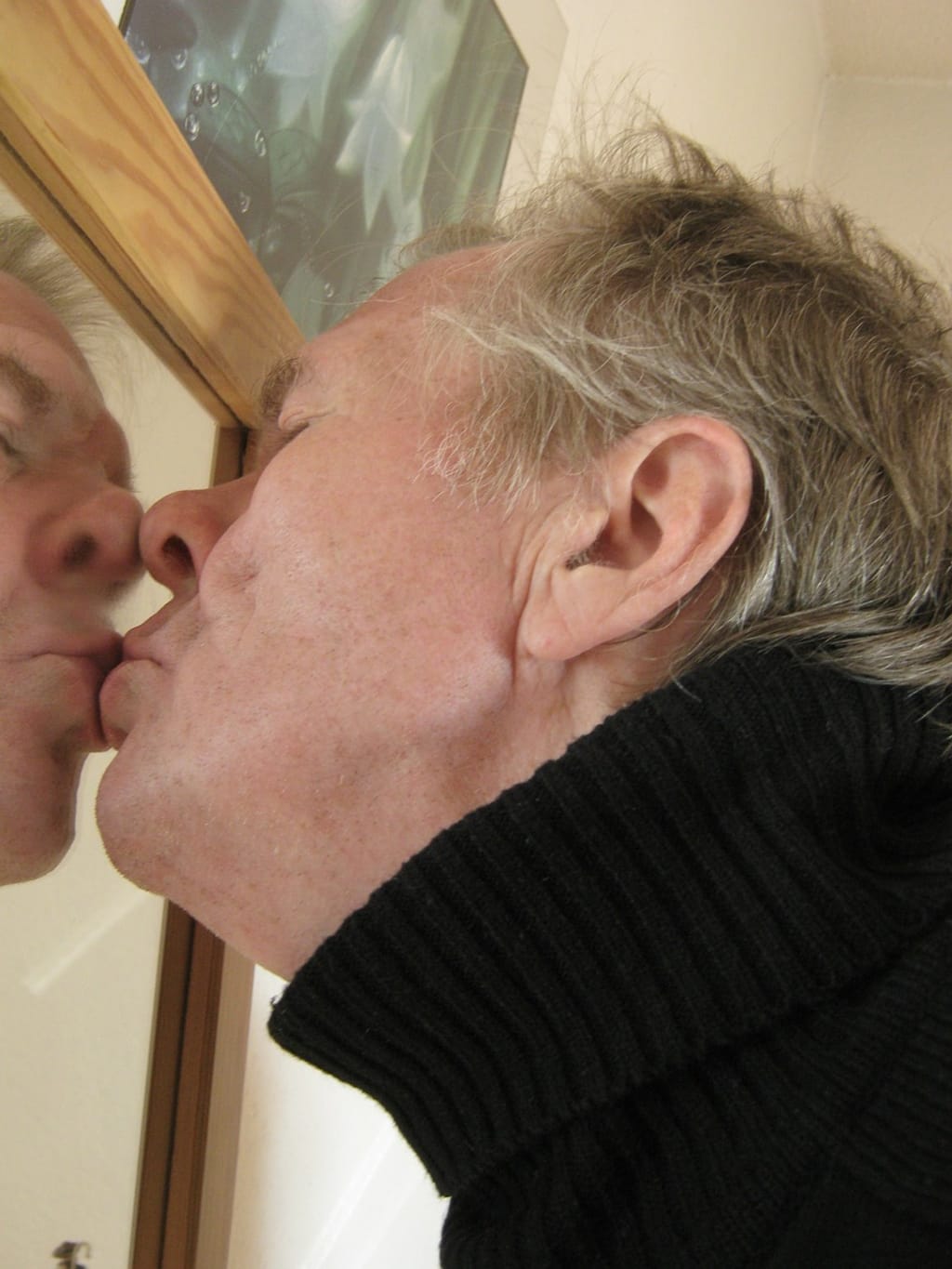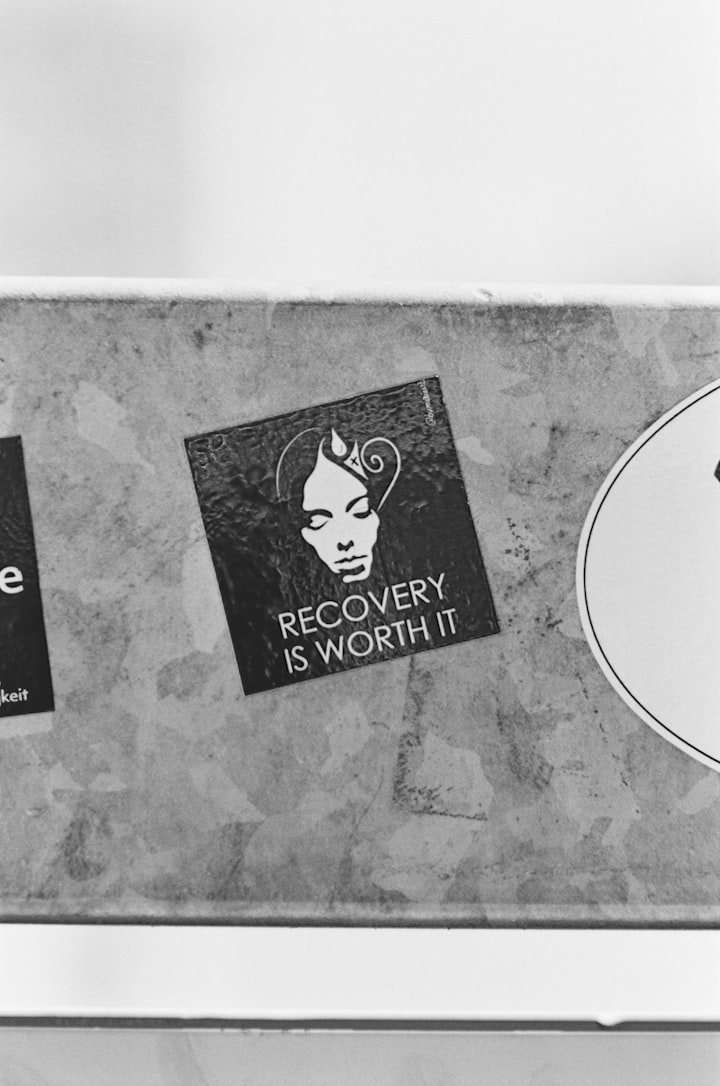
Have you ever been to see a psychologist, maybe because your doctor referred you or you just thought you could do with talking a problem over? Have you ever disagreed with them about something? Then you probably know exactly what I'm talking about.
Psychologists are, in my personal experience, very intellectual but not smart enough to see that even they — as is the nature of all humans — are capable of being wrong.
You might have disagreed with them about something small, like the phrasing of a problem, or something larger like a conclusion they made about you. I disagreed with a psychologist yesterday about taking a type of medicine (antipsychotics) that he recommended. They're not licensed for my condition in the UK — I have Borderline Personality Disorder, and you can read about that here — but they can be used to treat it if a doctor recommends it. Unfortunately, they come with the risk of something called Tardive Dyskinesia, a condition that causes involuntary movement of the body and can be permanent depending on a number of factors.
I've had an involuntary movement side-effect before. When I took the typically prescribed anti-nausea drug Metoclopramide I got something called an Acute Dystonic Reaction, which caused my entire body from the waist up to be pulled backwards as if someone had marionette strings tied to me. It started with my lips, causing me to smile and leaving me unable to bring my lips back to a normal resting position. It progressed to my eyeballs until it was just the whites of my eyes that were visible — combined with my spine being bent backwards, I basically looked possessed. It was a truly horrific experience and understandably, I'm now pretty fearful of anything similar happening again, so when I read that antipsychotics could cause a similar problem that might not be easily cured by an injection (as my Dystonic Reaction was), I decided it simply wasn't worth the risk yet — especially not when there were other medications I could try first.
The psychologist was unable to accept my refusal to take the medicine he thought would be best for me, and the session devolved into a rather heated exchange about medication. He didn't want to give me mood stabilising medication — what I had decided to try first — and I wasn't taking antipsychotics, so we went round in circles on the subject for about ten minutes before I finally said, "Okay, I'm not taking antipsychotics, you aren't giving me mood stabilisers, so what are my other options?" He looked at the wall quite blankly before dropping the entire subject, surrendering his principles and giving me mood stabilisers.
When he asked about my symptoms and daily life, I mentioned that I don't go out much — basically just for necessary things like medical appointments, and when I do go, I take my mum with me — and he grabbed on to that one thing like a dog with a steak and didn't let it go for about twenty minutes. I have Borderline Personality Disorder, but he was acting like I was agoraphobic. Don't get me wrong, I suppose I walk a fine line between being averse to going out and afraid of it, but I'm not agoraphobic. There's nothing wrong with being agoraphobic, but I'm not, so his long and rambling description of how to gradually desensitise myself to going outside was a pretty big waste of time.
Besides that, I had met the man about ten minutes ago and wasn't there for advice, I was there to get my medication altered and to be assessed prior to meeting my actual therapist who'll be giving me advice on a regular basis, so I told him exactly how I felt: that he was a completely new person and I wasn't going to start doing things because a virtual stranger recommended it. A key thing to me is that I need to have a good relationship with a therapist, and to like them (duh) to take their advice, and to give them the information about myself that will help them to tailor advice to my personal needs. This man only knew what was in my brief notes, nothing about my feelings or my viewpoints, so his advice was unable to be tailored to my needs.
You'd think this is a fair enough thing to say, right? Especially when I explained that I didn't think it was bad advice and wasn't discounting the principle of gradual exposure to anxiety triggers, just that I wanted to take that advice from someone who knew me as more than just a folder on their desk... but apparently not. He took immediate offense to this as if he was genuinely surprised that I wasn't going to blindly trust him just because he holds medical qualifications.
From that disagreement on, he became cagey and useless. When I actually asked for advice (I hadn't even asked for advice about my anxiety!), he refused to give it because I had said I wouldn't start doing things that scared me just because he said to. What a damn narcissist.
It's not just him, though: it's all medical professionals, but I've most commonly found it in general practitioners and those in the mental health field. None of them seem to be able to admit that they can be wrong, or that their patient might know just a little bit of information about their own conditions too.
I have quite a variety of medical conditions — both mental and physical — so as a result, I have a reasonable amount of medical knowledge. What drugs can interact, what various symptoms could mean, basic things.
I went to a doctor about what I described as "bone pain" when I was fifteen or so — and every doctor I saw dismissed it as muscle pain, and treated it as such. I kept insisting that the pain was in my bones, I could feel an intense ache in them almost constantly, but it wasn't until a specialist pain doctor saw me and ran blood tests that they discovered I was deficient in Vitamin D3, something which, you guessed it, causes bone pain! Did any of my GPs apologise or admit that they should have listened to me? Did any of them even think about the fact I'd been in significant pain for over a year because they refused to believe I could be right and them wrong? Did. They. Fuck.
It's quite frustrating for someone like me who has a wide variety of health conditions ranging from migraines to depression to be treated as if I'm incapable of understanding my own symptoms. Who knows their own body and mind better than someone with "faulty" ones? But there's no medical degree attached to my name, so my opinions and thoughts are usually considered irrelevant.
It's hard to disagree with a doctor; after all, they're the professional and they do know best a lot of the time... but there are times when the patient knows best, either because they've done proper research (a quick Google search resulting in you concluding you're dying does not count) or simply because they're more attuned to their bodies signals and messages, and doctors seem unable to accept this. They've been treated almost reverently by people their whole life; the proud parents telling everyone their child is in medical school, the friends who deem every thought that leaves their lips as gospel, the stranger who raises their eyebrows and says "impressive" when informed they're talking to a doctor, they all make doctors feel like untouchable super-humans incapable of mistakes and missteps — which results in ignored patients floundering in pain or discomfort because their doctor believes they are always right.
Stop treating the doctor you meet in a bar or cafe like he has done anything other than going to school for a really long time. Stop assuming your cardiologist friend is an encyclopedia of always-correct medical knowledge. Stop acting as if your son or daughter (or any gender in between) is a demi-god for choosing a medical profession. Stop being afraid to question or refute something your doctor says to you; they're making decisions about your body and life and you have every right to want more information about what they're telling you. They may look annoyed, disgruntled, or even angry that you dare to question their supposedly infinite and forever-correct knowledge, but it's your right to do that as a patient.
They need reminding that just like you, they are human and capable of error. Until we all start reminding them of that, the few that do (like me) are left being deemed belligerent and argumentative for querying their information, and it's resulting in substandard care — like a psychologist that won't give solicited advice because you decided not to immediately follow their unsolicited advice.






Comments
There are no comments for this story
Be the first to respond and start the conversation.